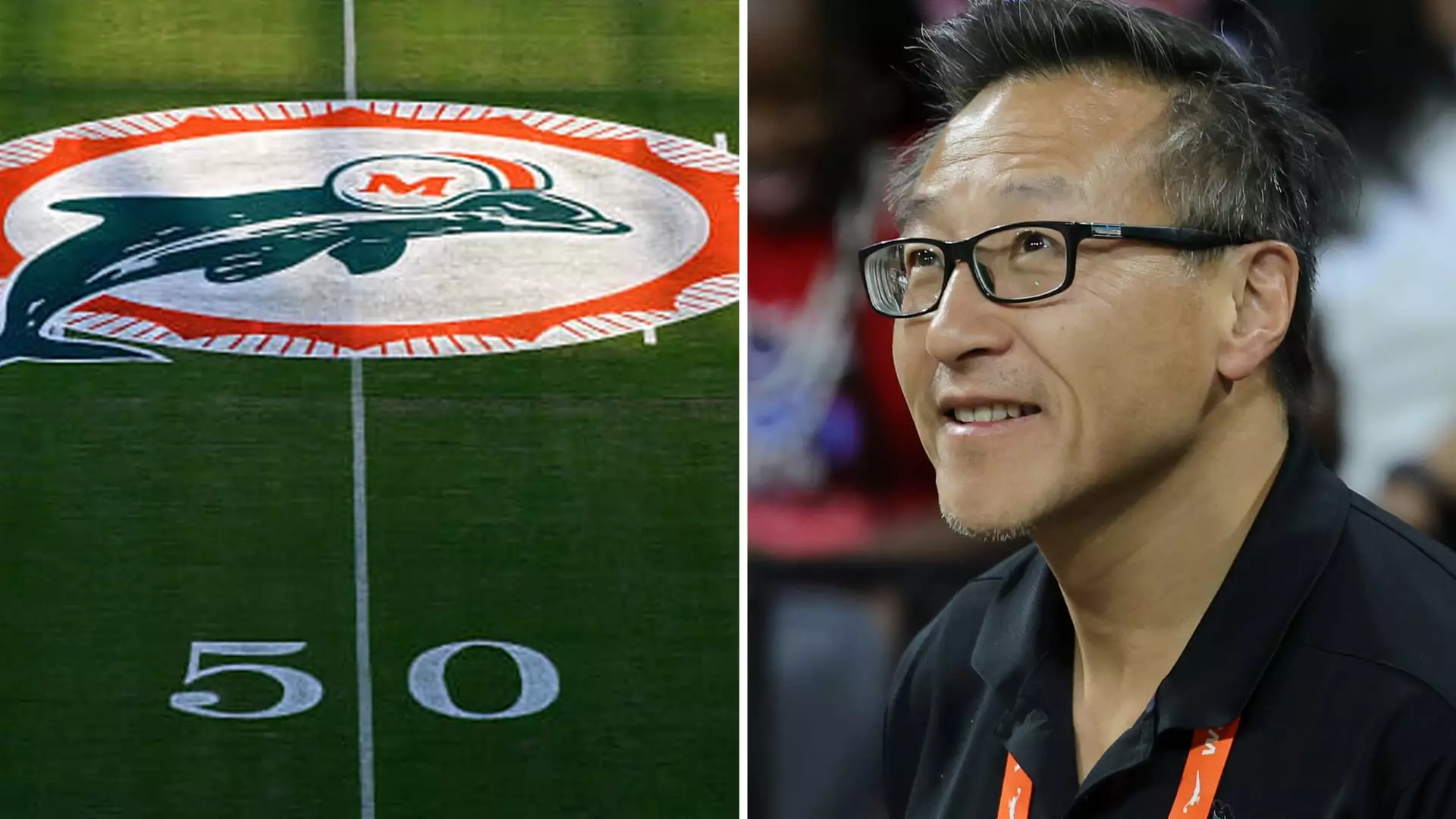In a notable shift within the sports investment landscape, the Miami Dolphins are reportedly in advanced negotiations to sell a minority stake in the franchise to Ares Management, a private equity powerhouse, alongside billionaire Joe Tsai. This development signals a growing trend among sports team owners to broaden their portfolios by not only acquiring multiple teams but also by managing their own venues, thereby unlocking additional revenue streams.
A Lucrative Valuation Amid Financial Evolution
The potential agreement comprises the Dolphins themselves, operational rights to Hard Rock Stadium, and assets linked to major events like the Miami Grand Prix Formula 1 race and approximately half of the Miami Open. The estimated value of these assets stands at approximately $8.1 billion, according to insider information. Remarkably, a controlling stake in these assets would have hovered above $10 billion, emphasizing the increasing worth of sports franchises in today’s financial ecosystem.
This move would represent a landmark moment as it adds the NFL to the small circle of leagues welcoming private equity investment. The NFL, historically resistant to external investment, opened its doors to select private equity firms in August, reflecting a strategic shift in response to skyrocketing evaluations that have made securing buyers a complex undertaking. CNBC identified the Miami Dolphins as the eighth most valuable team in the league, with a standalone valuation of $7.1 billion, excluding the stadium.
If finalized, Ares Management would take a 10% stake in the franchise, while Tsai, who is already well-versed in the sports industry as the owner of the Brooklyn Nets, is negotiating for an additional 3%. As talks are ongoing and no contracts have yet been signed, the specifics remain unconfirmed, and both the Dolphins and the NFL have opted not to comment. This lack of commentary on behalf of the involved parties points to the somewhat delicate nature of negotiations in instances like these, where financial and operational implications are heavily scrutinized.
Stephen Ross, who acquired the Dolphins for $1.1 billion in 2009, has made it clear that any capital gained from this sale will be strategically aimed at enhancing his real estate endeavors in South Florida, alongside boosting his investments in sports-related assets. Ross’s dual role as both the owner of the Dolphins and the operator of Hard Rock Stadium grants him unique advantages, allowing him to harness third-party event revenues to augment the franchise’s overall financial health.
Earlier this year, Ross reportedly rejected an astonishing $10 billion offer for controlling interests in the Dolphins, Hard Rock Stadium, and the Formula One Miami Grand Prix. His refusal indicates a desire to maintain control of the organization within his family, showcasing a familial legacy that weighs heavily on certain franchise owners. Such decisions are not merely financial but deeply personal, influencing the team’s long-term trajectory and Ross’s own status in sports ownership.
The Role of Private Equity in Modern Sports
The NFL’s recent policy changes allowing private equity involvement delineate a significant evolution in the business of sports, particularly as other major professional leagues have already incorporated such investments. The inclusion of Ares Management, noted for overseeing $450 billion in assets, underscores the financial robustness that private equity firms can inject into sports franchises. This venture presents a symbiotic opportunity: teams can tap into vast resources while investors gain a foothold in the lucrative sports industry.
Joe Tsai’s investment journey, which includes ownership stakes in multiple teams spanning various sports, illustrates a model of diversified ownership. With his extensive portfolio, from the Brooklyn Nets to soccer clubs, and operating flagship arenas such as Barclays Center, he exemplifies how modern moguls are consolidating influence in the multifaceted realm of professional sports.
The Miami Dolphins’ negotiations represent a pivotal moment not just for the franchise itself but for how professional sports teams navigate the complex financial landscape. As this deal takes shape, it will certainly impact the future of NFL investments and could set a precedent for how franchises operate within a rapidly changing economic environment. The blending of traditional sports ownership with private equity investment reflects the adaptive strategy necessitated by rising valuations and ever-increasing competition in the sports market.

Leave a Reply